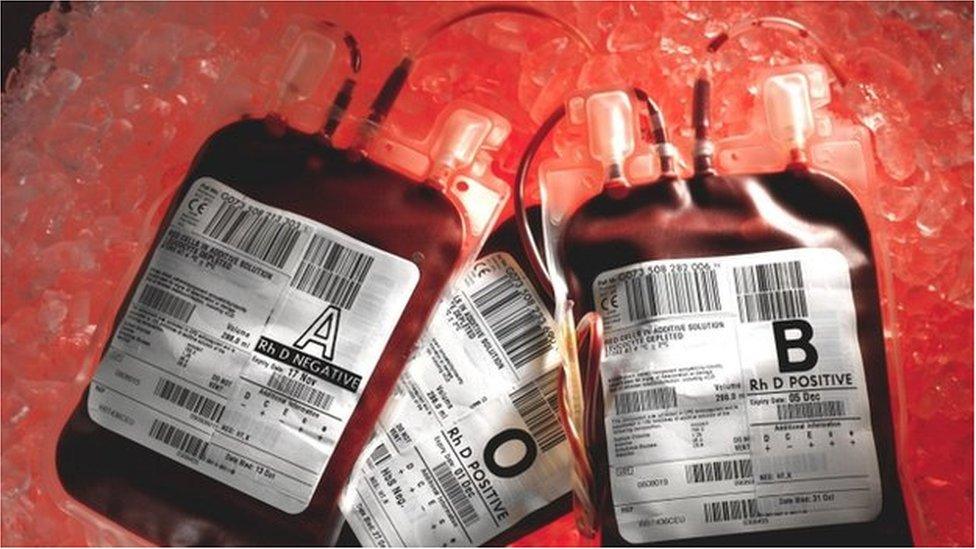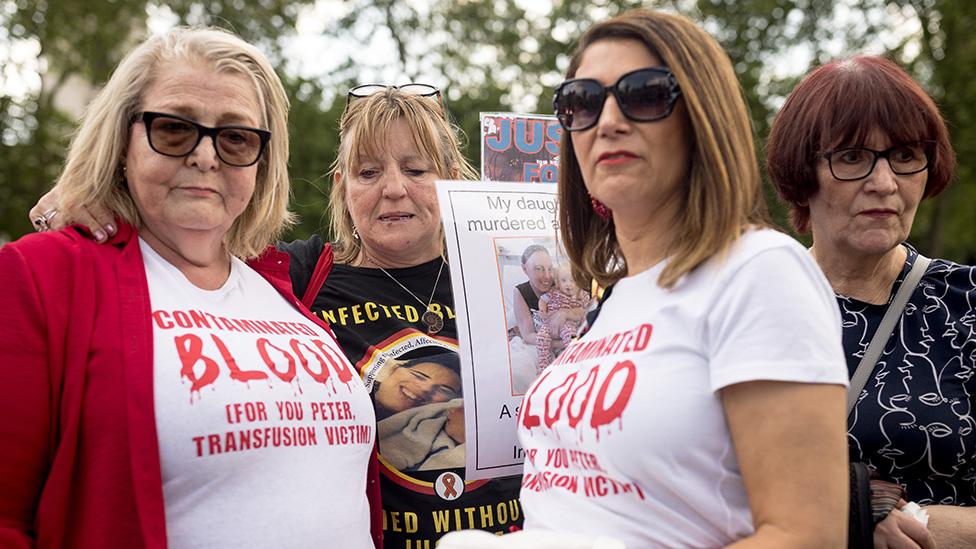Scottish ministers given 'inaccurate' blood scandal briefing
- Published
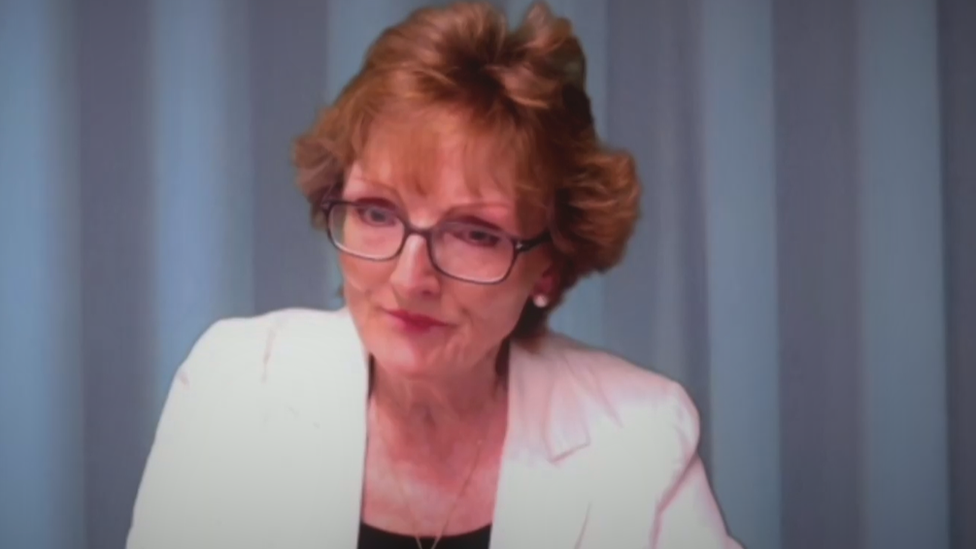
Former senior medical officer Prof Aileen Keel has given evidence to the UK Blood Inquiry
Scottish ministers were given an inaccurate briefing on the infected blood scandal, an inquiry has heard.
In 2005, the Scottish health minister was given a "line to take" that a review into who received infected blood products began in the early 1990s.
However, former senior medical officer Prof Aileen Keel told the UK Blood Inquiry, external the exercise did not begin until January 1995.
The scandal has been described as the NHS's worst ever treatment disaster.
It left thousands of patients across the UK, including an estimated 3000 in Scotland, infected with hepatitis and HIV, causing many early deaths.
Most of those involved had the blood-clotting disorder haemophilia and relied on regular injections of the blood product Factor VIII to survive.
These patients were unaware they were receiving contaminated Factor VIII and, despite repeated warnings at the top of government, continued to be given the product throughout the 1970s and 1980s.
Prof Keel, a haematologist who held several senior roles advising government between 1992 and 2015, was giving evidence to the Infected Blood Inquiry in London.
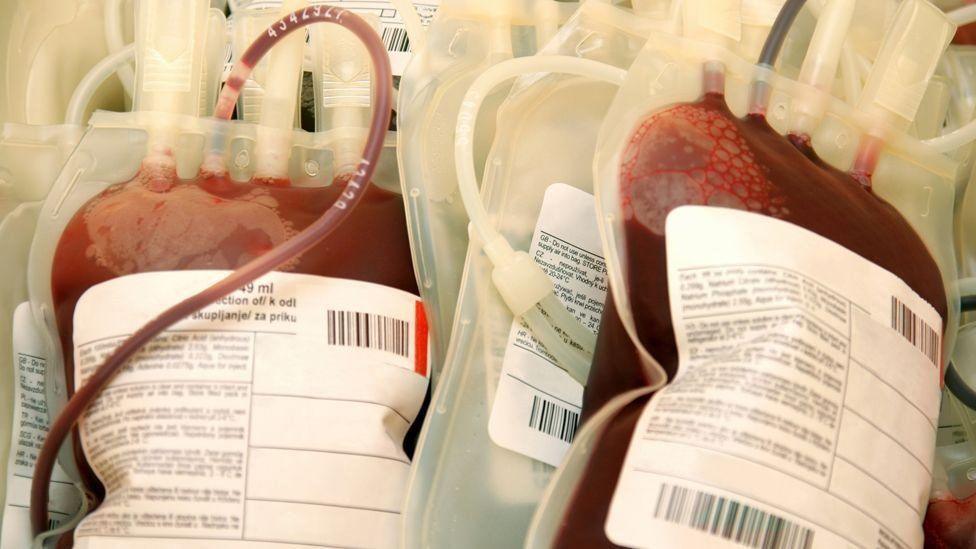
Thousands of people were infected with hepatitis C and HIV in the 1970s and 1980s
In written correspondence with the inquiry team, external, she was asked about a briefing given to ministers in January 2005 and whether the "line to take" on the "lookback exercise" was accurate. The Scottish Executive health minister at the time was Andy Kerr.
Prof Keel's written response states: "I believe this 'line to take' was inaccurate, probably due to a less than full grasp of the detail of the chronology around the setting up of the lookback exercise."
She said the decision to conduct the exercise was taken in mid-1994 by the Scottish National Blood Transfusion Service (SNBTS) and it began in January 1995. The policy decision to have a review was made in mid-1994, the former chief medic said, after an earlier pilot in the south-east of Scotland.
She added: "Thereafter, significant planning had to be undertaken to ensure that the other parts of Scotland, as well as the rest of the UK, were in a position to participate. This required time to ensure that the lookback was conducted as equitably and uniformly as possible."
Appearing at the inquiry by video link on Monday, Prof Keel was asked about other aspects of the exercise.
'Considerable logistical difficulties'
While the possibility of having such an exercise was raised before she became senior medical officer for Scotland, she said logistical concerns meant it did not go ahead.
She told the inquiry: "The logistical difficulties were very considerable, not least checking hospital records to trace recipients and then, of course, the tracking down and testing of those recipients."
Jenni Richards QC, counsel to the inquiry, asked if the difficulties were good enough reasons to avoid holding the exercise.
Prof Keel responded: "Well, hindsight's a great thing. Clearly, the lookback did eventually take place and was demonstrated to be feasible.
"Although the difficulties encountered in other bits of Scotland – particularly the west, as I've already mentioned, and indeed the rest of the UK – were very, very considerable."
The inquiry before Sir Brian Langstaff continues.
Related topics
- Published18 May 2021
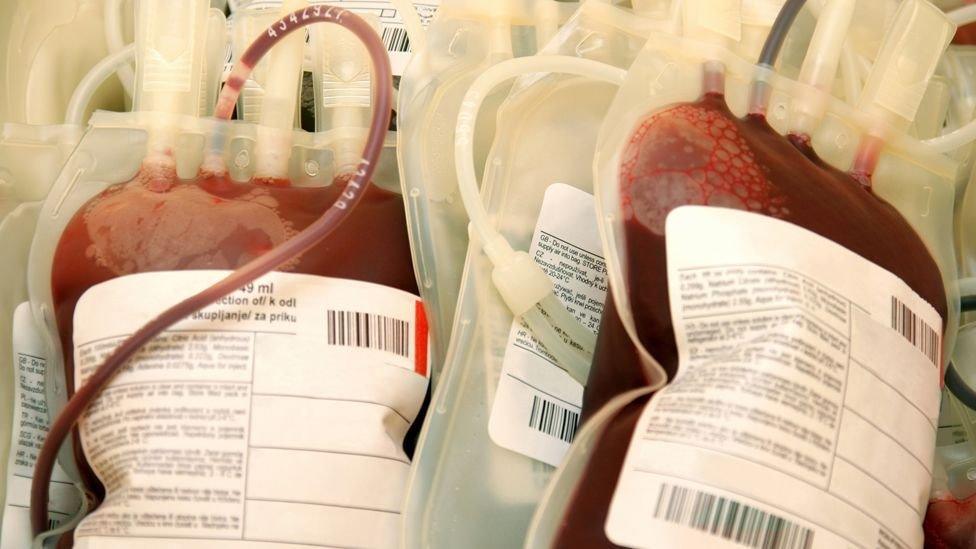
- Published24 September 2018
